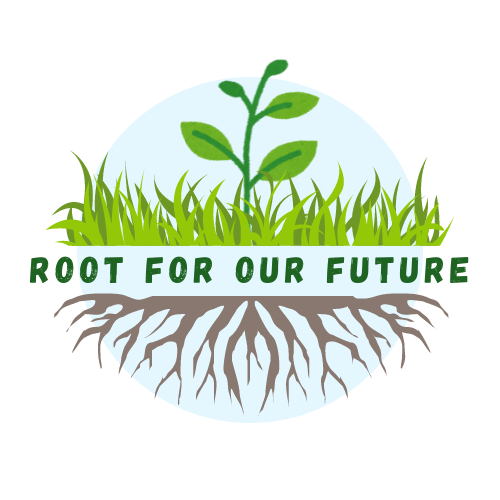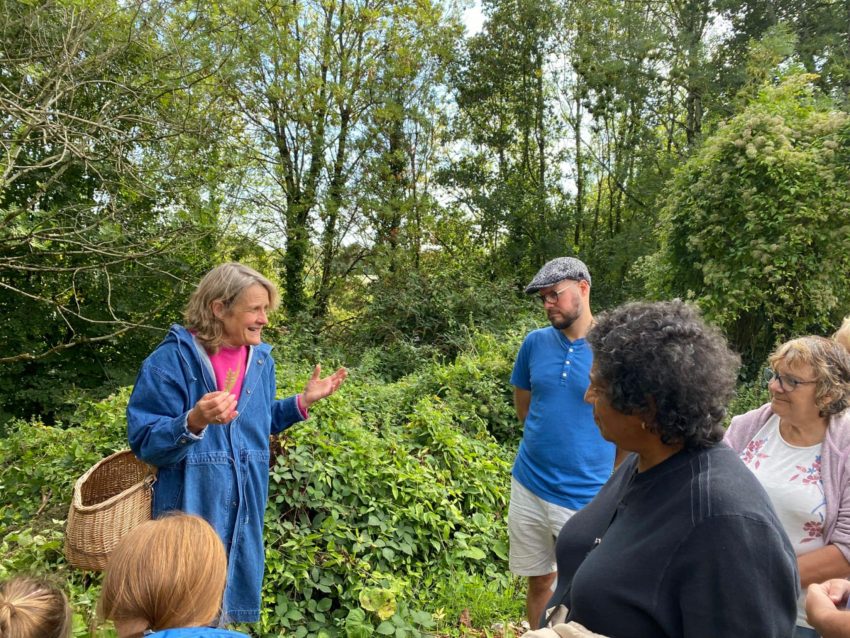A local solution for climate resilience and a stronger food system.
In a world grappling with climate change, food insecurity, and unsustainable agricultural practices, one ancient tradition is making a quiet comeback: foraging.
Gathering wild, edible plants, mushrooms, fruits, and even seaweed isn’t just a hobby for nature lovers – it’s a powerful, practical way to build a more resilient, localised, and climate-friendly food system.
As part of our Root for Our Future project, we recently hosted a guided foraging walk with Adele Nozedar, founder of Brecon Beacons Foraging. The event took place along our local canal, a beautiful stretch of landscape that many of us pass daily, often without realising the abundance of wild food growing all around us.
It was more than just a walk. It was an invitation to slow down, look closer, and connect with the land in a new (and very old) way.
“It was a great reminder that the area we live in is abundant with food and sustenance!”
“Thank you so much for organising the walk — a lovely way to spend a Sunday afternoon.”
These reflections from participants capture something deeply important: wild food isn’t just about nutrition – it’s about community, connection, and resilience.
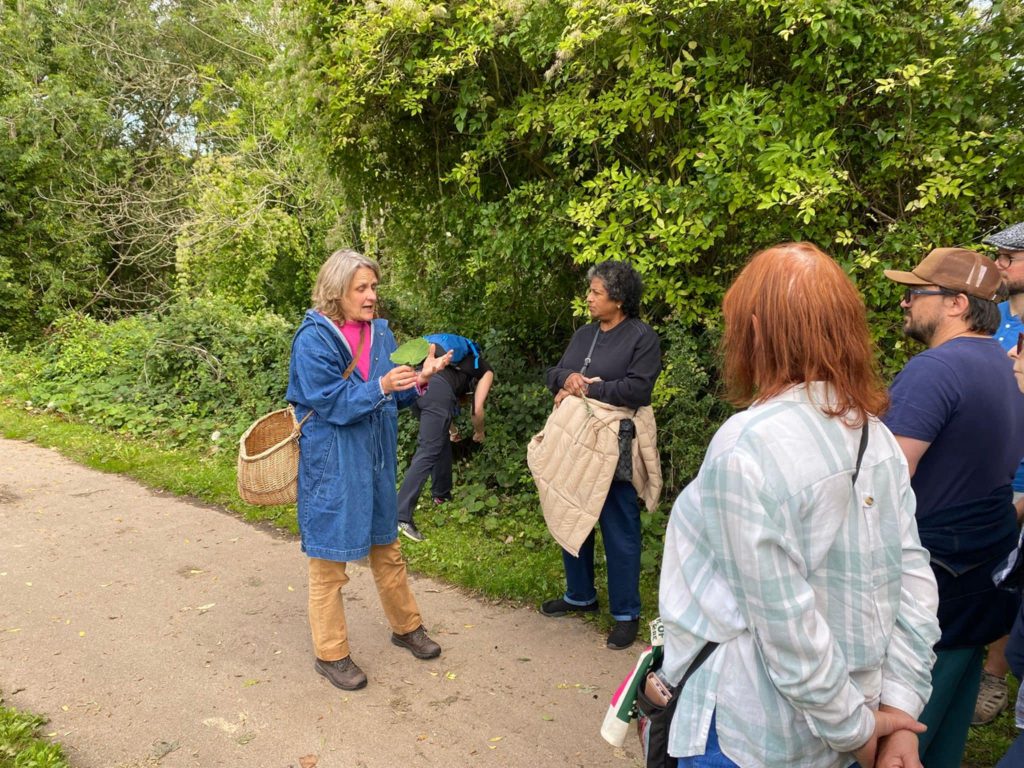
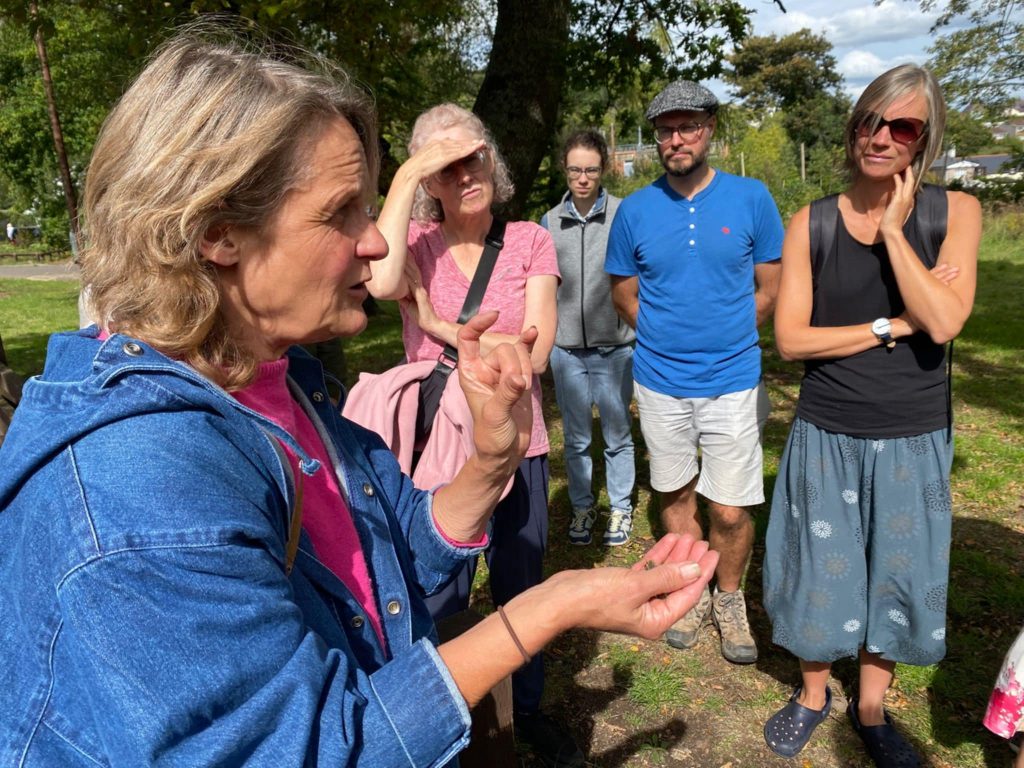
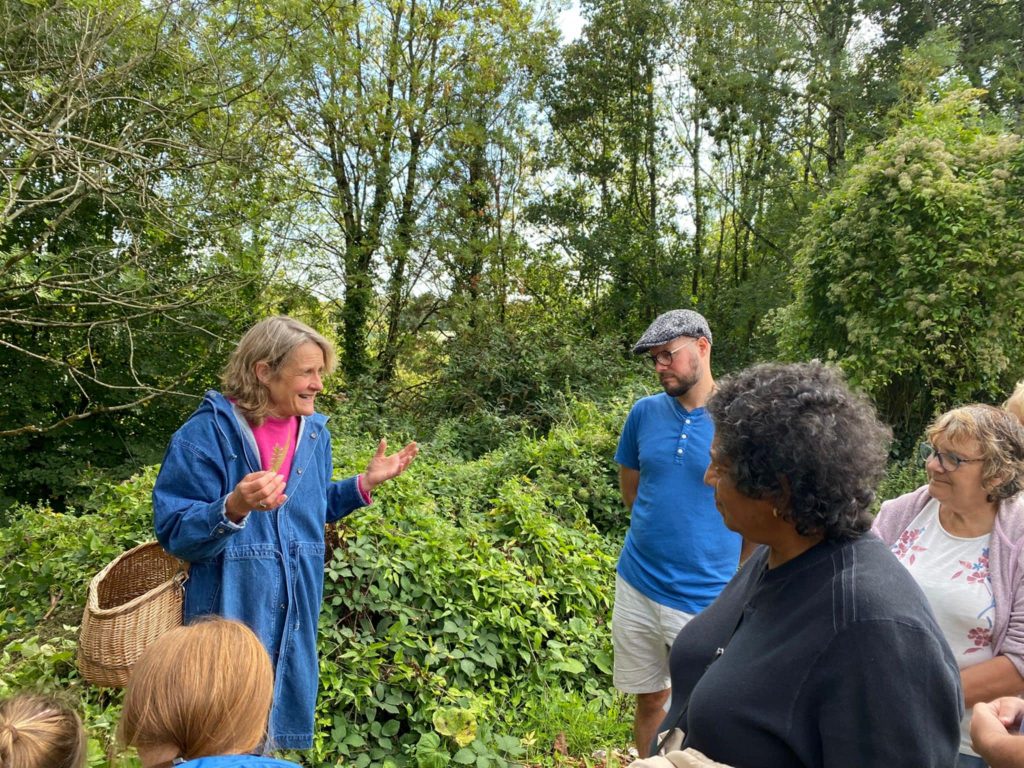
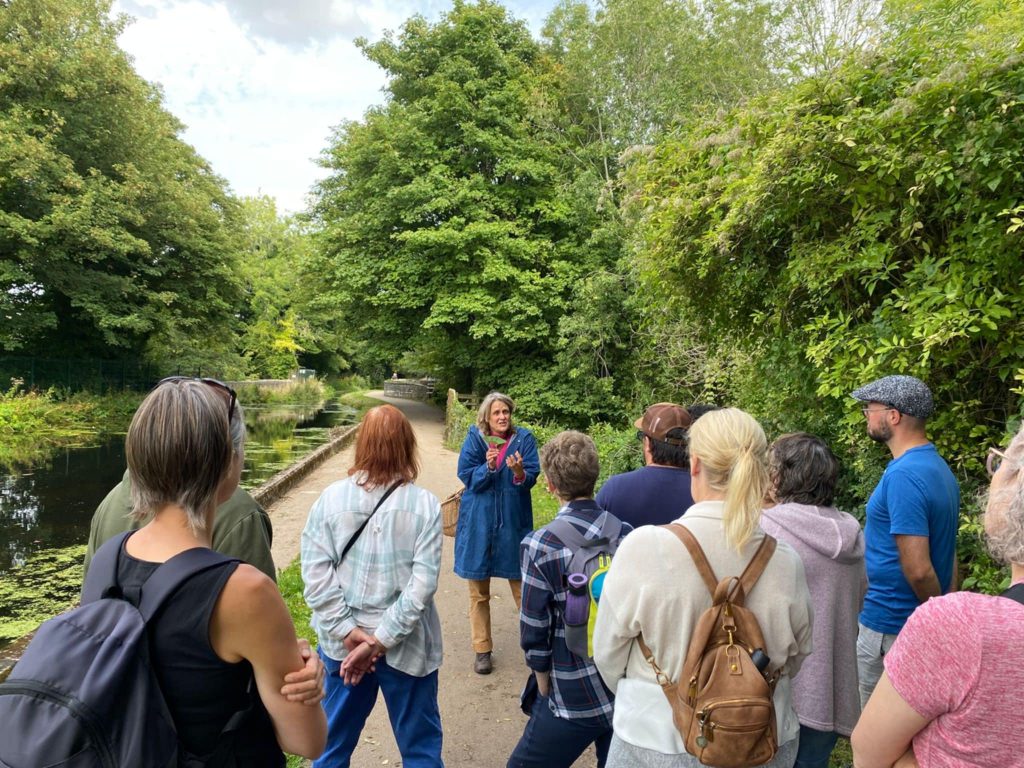
In the context of climate change and growing concerns about food security, foraging offers a powerful, place-based response. Let’s explore how foraging supports sustainability, food security, and ecological awareness in the face of global challenges.
🌍 Low-carbon footprint food source 🌍
Unlike industrial agriculture, wild foods don’t require irrigation, fertilisers, pesticides, fuel-powered machinery, or long-distance transportation. When you forage locally:
- You’re cutting emissions from food transport (often called “food miles”).
- You’re avoiding the embedded carbon from synthetic fertilisers and monoculture farming.
- You reduce reliance on industrial food systems that contribute significantly to greenhouse gas emissions.
In short, a handful of wild berries picked on a walk has a much smaller environmental impact than plastic-wrapped blackberries flown in from another country.
💪 Strengthening local food resilience 💪
Foraging promotes self-sufficiency and local knowledge, especially in times of crisis or supply chain disruptions. Whether it’s due to extreme weather, political instability, or economic downturns, global food supply chains are increasingly vulnerable.
By learning what grows wild in your area and how to harvest it responsibly, you’re:
- Reducing dependence on centralised food systems.
- Diversifying your local food sources.
- Enhancing community resilience by sharing skills and knowledge.
This local empowerment becomes especially important during events like droughts, floods, or pandemics, when access to conventional food can be compromised.
References
https://ipes-food.org/report/from-uniformity-to-diversity/
Agroecology and the emergence of a post COVID-19 agriculture (2020)
🫶 Preserving biodiversity and ecosystems 🫶
Sustainable foraging encourages awareness and stewardship of native plants and ecosystems. Foragers often become advocates for preserving natural areas and understanding the importance of:
- Biodiversity in plant and fungi populations.
- The interdependence between species and ecosystems.
- Protecting habitats from development or pollution.
When done responsibly, foraging doesn’t deplete resources – it encourages reciprocity and respect for the land.
References
🚫 Reducing food waste 🚫
Nature doesn’t waste anything – and neither do skilled foragers. Wild food is often seasonal and abundant, growing where and when it’s needed most.
Foraging teaches people to:
- Eat in tune with seasonal availability.
- Use all edible parts of a plant or fungus.
- Preserve and store foods without industrial processing.
This mindset helps shift away from the waste-heavy practices of industrial food production and consumption.
⭐ Cultural revitalisation and food justice ⭐
Foraging reconnects communities with traditional ecological knowledge, especially in Indigenous and rural cultures where wild foods have always been central. Reviving these practices can:
- Promote food sovereignty.
- Challenge systems that have historically excluded marginalised communities from land and food access.
- Rebuild relationships between people and place.
In this way, foraging isn’t just environmental – it’s deeply social and political, too.
🌲Mental health and climate awareness 🌲
Finally, foraging fosters a deeper relationship with nature. As people reconnect with local landscapes, they become more invested in protecting them. This connection supports:
- Greater awareness of climate issues.
- Mental wellbeing through time outdoors.
- A more intentional, seasonal, and mindful approach to eating.
When we know our ecosystems intimately, we’re more likely to defend them.
⚠️ A few words of caution ⚠️
Know the Risks – Be aware that some wild plants and fungi are poisonous and can be deadly, never eat a plant or mushroom unless you are 100% sure of its identity and know it is edible.
Foraging must be done responsibly and ethically:
- Never take more than you need.
- Avoid rare or endangered species.
- Understand local rules and property rights.
- Learn from experienced and qualified foragers.
The goal is not to exploit the land, but to live in balance with it.
In the face of the climate crisis and food system vulnerabilities, foraging offers a grounded, local, and resilient alternative. It’s not a complete solution to global food issues, but it is a meaningful practice that fosters ecological awareness, reduces environmental impact, and reconnects people with the land that sustains them.
So, the next time you pass a patch of dandelions or a cluster of wild berries, consider this: the future of food might just be growing – quietly, freely, and sustainably – all around you.
💭 For more information on foraging wild foods, the following links are a good start in the right direction:
https://www.food.gov.uk/safety-hygiene/guidance-for-safe-foraging
https://www.woodlandtrust.org.uk/visiting-woods/things-to-do/foraging/foraging-guidelines
https://www.woodlandtrust.org.uk/visiting-woods/things-to-do/foraging
https://www.wildfooduk.com/foraging-code
Root for Our Future
This event is part of Root for Our Future, a two-year project exploring food sustainability within Torfaen. Everyone is welcome to attend one of our events. They’re completely free!
